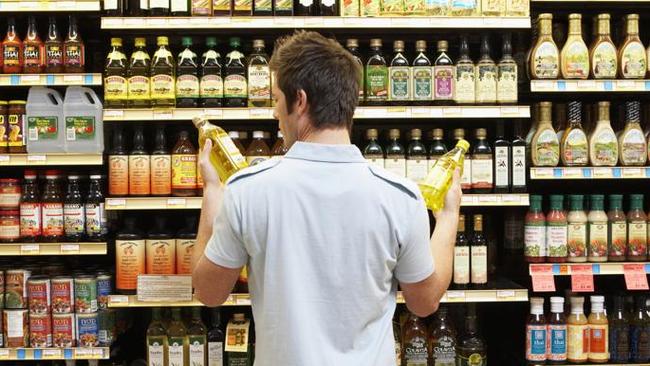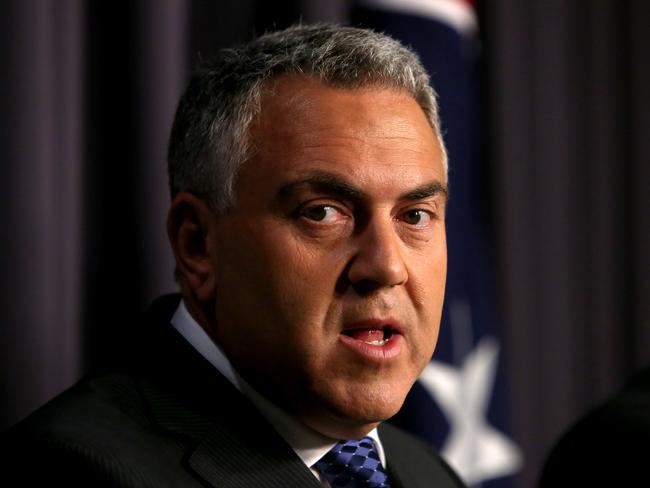Could the GST rise to 18 per cent?
MORE and more, people are arguing we should be paying a higher GST rate. So are we about to get slogged even more on everything we buy?

COULD you soon be paying a much higher GST? The tax has been 10 per cent since it was introduced in 2000 but there are arguments that it should be raised to generate more government revenue.
Overnight, the latest Australia review report came out from the OECD. Among the many points it discussed, one related to the GST. Specifically, why the GST should be increased to as much as 18 per cent.
The argument from the OECD, and the organisation is certainly not the first to make it, is that falling government revenue should be made up with a higher consumption tax.
The report said that compared to the OECD average, Australia had a relatively low level of indirect taxes as a percentage of the gross domestic product — 7 per cent compared to the average of 12 per cent. It also said that indirect taxes as a proportion of government revenue is low.
Indirect taxes are the taxes you pay through your consumption, such as the GST, fuel excise, customs duty, and taxes on gambling and alcohol. Conversely, direct taxes are what you pay directly to the government through taxes such as personal income tax.
It’s true that compared to many countries, especially in Europe, the GST is relatively low. The UK has a nominal VAT (value-added tax) of 20 per cent while Denmark and Sweden’s sit at 25 per cent.

The OECD said the taking inspiration from either New Zealand or Israel, whose taxes are 15 per cent and 18 per cent respectively, made sense because those two countries also have a broad-based VAT system with few exemptions or zero rates.
The OECD said Australia should broaden its GST base, which would include nixing GST exemptions such as fresh food, medical costs and some education expenses.
The report said: “Broadening the GST base by reducing the number of zero rates and exemptions would make sound economic sense. The total effect of GST zero rates and exemptions for 2013/14 [financial year] in these categories is estimated at around $20 billion in foregone revenue.”
Debates around increasing the GST has gained momentum in recent times as government revenue has weakened. In April, Treasury secretary Martin Parkinson gave a speech to conservative think tank The Sydney Institute in which he said that the federal budget couldn’t return to surplus unless Australia moved to a system which favoured consumption taxes. Days later, the Reserve Bank governor Glenn Stevens said that a debate had to be had.
Increasing the GST is a fraught debate politically, as voters don’t like the idea of paying more for their everyday goods. Federal Treasurer Joe Hockey has ruled out increasing the GST (and it was an Abbott election promise for this term of government) but has also since said that any debate about increasing the GST needs to be led by the states, the would-be beneficiaries of a higher GST rate.
Just today, Finance Minister Mathias Cormann ruled out any increases to the GST in this term of government.

Some theorised that many of the federal budget cuts to state-funded areas such as healthcare was a backdoor ploy to get the states to agitate for a higher GST. But with state elections in Queensland and New South Wales on the horizon (plus the one just past in Victoria), it’s unlikely state leaders would be publicly advocating for a higher GST.
Often, an argument for increasing the GST corresponds with a correlating decline in the personal and company income tax cut. The idea is that one will offset the other for the consumer.
The OECD report said: “Theory and evidence suggest indirect taxes are preferable to direct taxes when considering economic growth, as they favour saving and investment and have a smaller impact on business costs and profits as well as work incentives compared with other major tax bases, notably corporate-income tax and personal income tax.”
Dr Remy Davison, the Jean Monnet chair in Politics & Economics in the Department of Politics and International Relations at Monash University, isn’t convinced that argument flies. “If you look at the [high] VAT rates in the UK and the EU, it hasn’t necessarily assisted in the overall taxation base,” he said. “There’s not a huge amount of evidence that it’s replacing income tax. There’s been a rise in total tax in the EU.
“Consumption taxes are seen as more efficient but it tends to penalise less well-off people. It will eat up more of low-income people’s budgets.”



